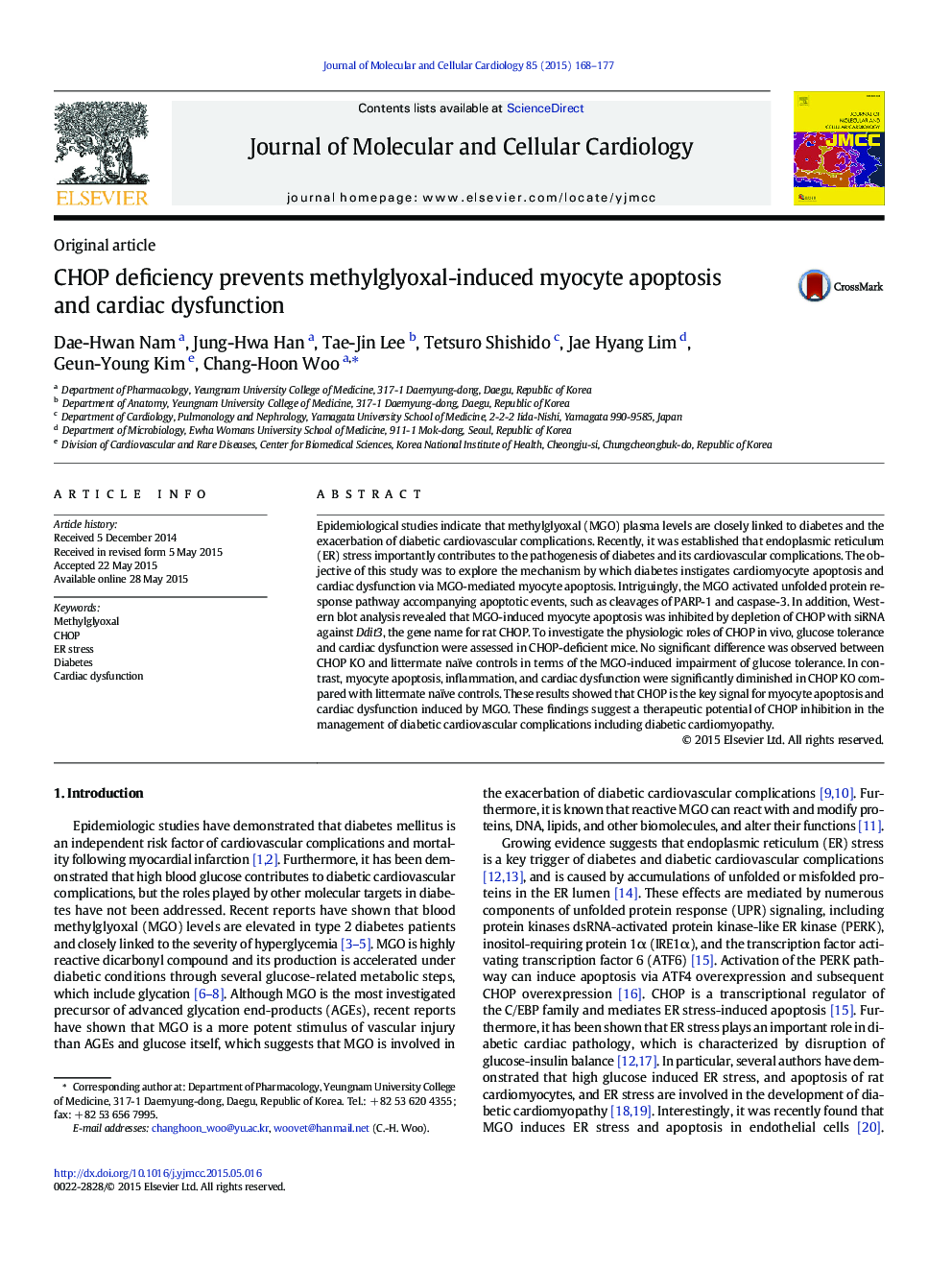| Article ID | Journal | Published Year | Pages | File Type |
|---|---|---|---|---|
| 8474199 | Journal of Molecular and Cellular Cardiology | 2015 | 10 Pages |
Abstract
Epidemiological studies indicate that methylglyoxal (MGO) plasma levels are closely linked to diabetes and the exacerbation of diabetic cardiovascular complications. Recently, it was established that endoplasmic reticulum (ER) stress importantly contributes to the pathogenesis of diabetes and its cardiovascular complications. The objective of this study was to explore the mechanism by which diabetes instigates cardiomyocyte apoptosis and cardiac dysfunction via MGO-mediated myocyte apoptosis. Intriguingly, the MGO activated unfolded protein response pathway accompanying apoptotic events, such as cleavages of PARP-1 and caspase-3. In addition, Western blot analysis revealed that MGO-induced myocyte apoptosis was inhibited by depletion of CHOP with siRNA against Ddit3, the gene name for rat CHOP. To investigate the physiologic roles of CHOP in vivo, glucose tolerance and cardiac dysfunction were assessed in CHOP-deficient mice. No significant difference was observed between CHOP KO and littermate naïve controls in terms of the MGO-induced impairment of glucose tolerance. In contrast, myocyte apoptosis, inflammation, and cardiac dysfunction were significantly diminished in CHOP KO compared with littermate naïve controls. These results showed that CHOP is the key signal for myocyte apoptosis and cardiac dysfunction induced by MGO. These findings suggest a therapeutic potential of CHOP inhibition in the management of diabetic cardiovascular complications including diabetic cardiomyopathy.
Related Topics
Life Sciences
Biochemistry, Genetics and Molecular Biology
Cell Biology
Authors
Dae-Hwan Nam, Jung-Hwa Han, Tae-Jin Lee, Tetsuro Shishido, Jae Hyang Lim, Geun-Young Kim, Chang-Hoon Woo,
